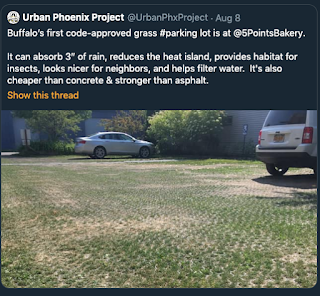 The Guardian
The Guardian
Advocating spongy parking lots to replace the asphalt intense surface parking lots in our cities, particularly the neighborhood I live in here in Portland, Oregon is small potatoes compared to the plans China has for upgrading its urban drainage infrastructure. Something Houston might have
paid more attention to as they laid down more and more asphalt.
What's the priority?
"To retain valuable water resources and to utilise the natural system to achieve drainage, to establish natural retention, natural infiltration and natural purification – like a sponge city,” says Michael Zhao, an associate and expert in water management in the Shanghai office of global urban designers
Arup.
Hello.
We haven't given up advocating for spongy parking lots here in Portland, but it may take a flood to put the spotlight on neighborhoods like ours that border the Willamette River before we begin to retrofit Portland as a spongy city. Hope not. It takes considerable time to RESHAPE parking lots, neighborhoods, and cities.
Ruth Ann Barrett, SpongyParkingLots.com, Portland, Oregon, September 16th, 2017.

